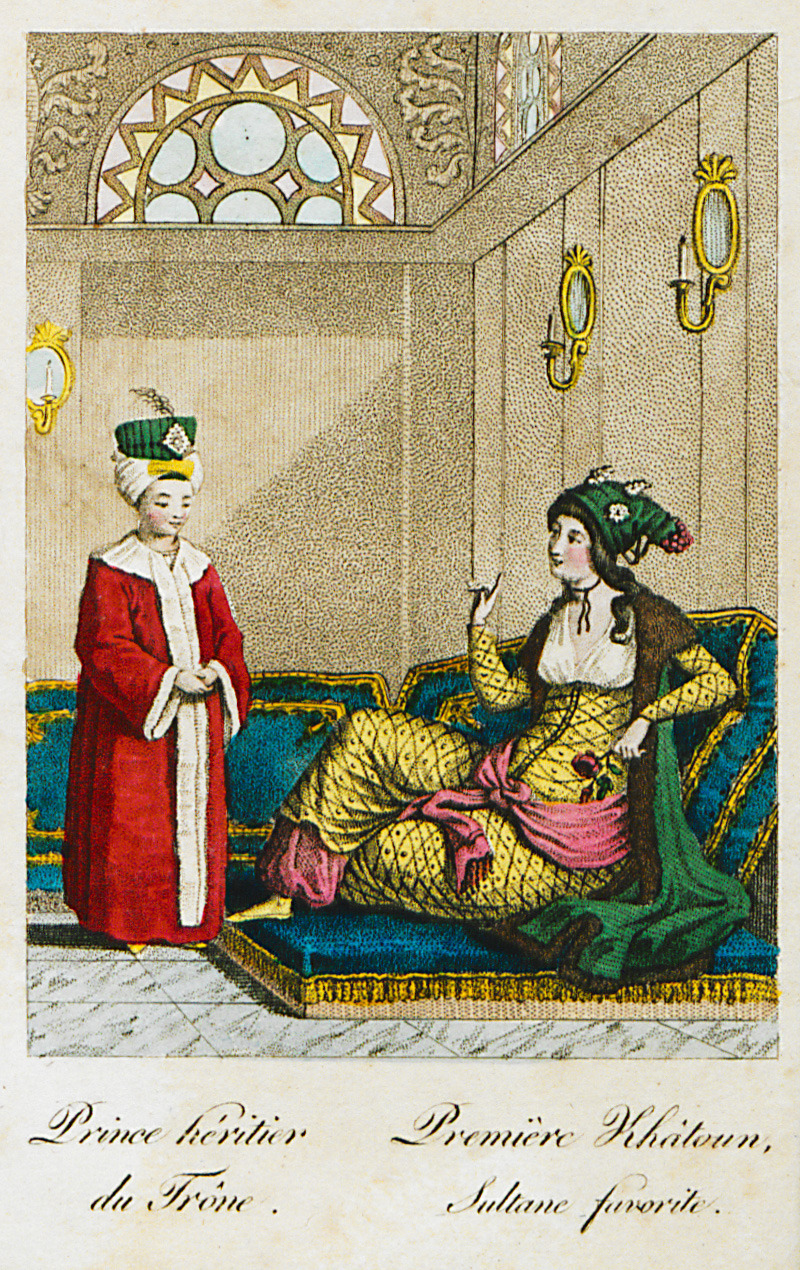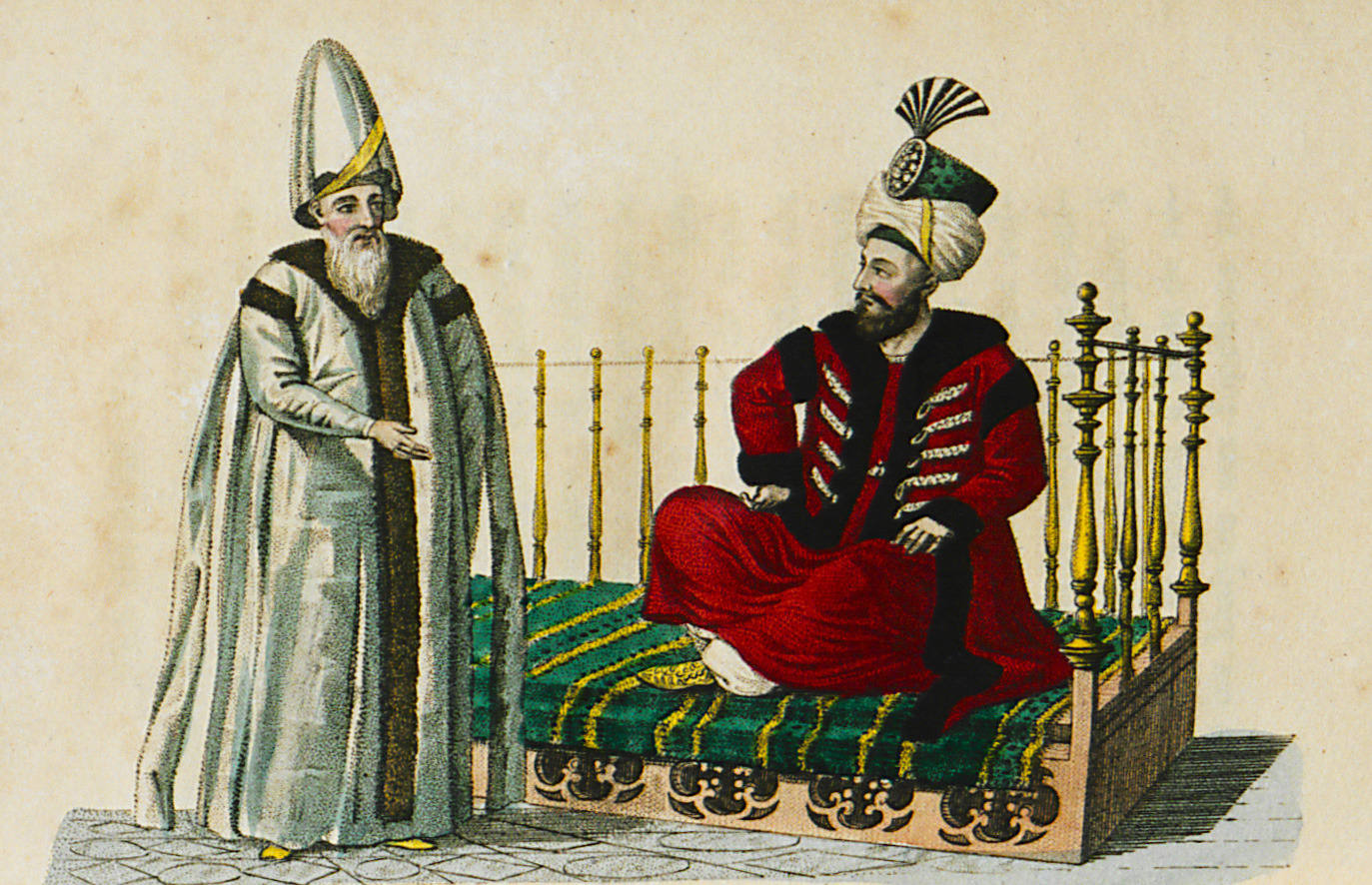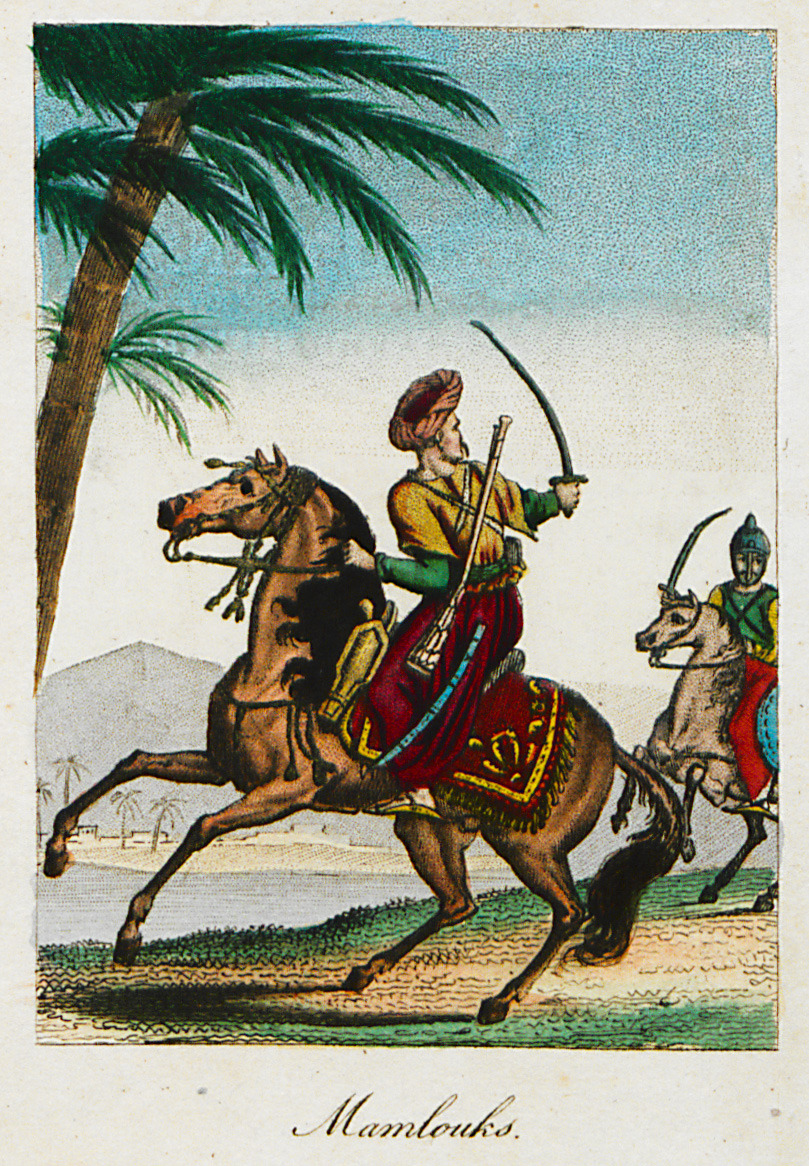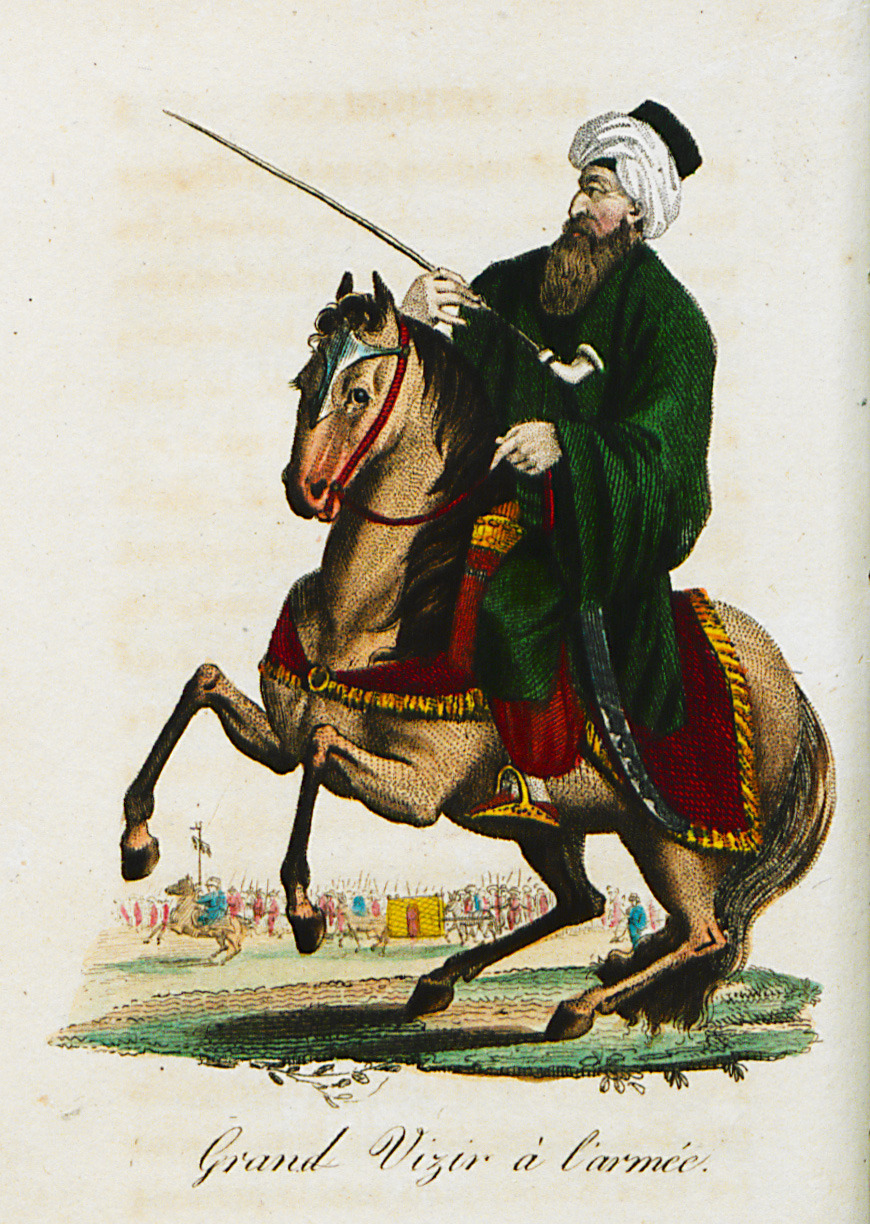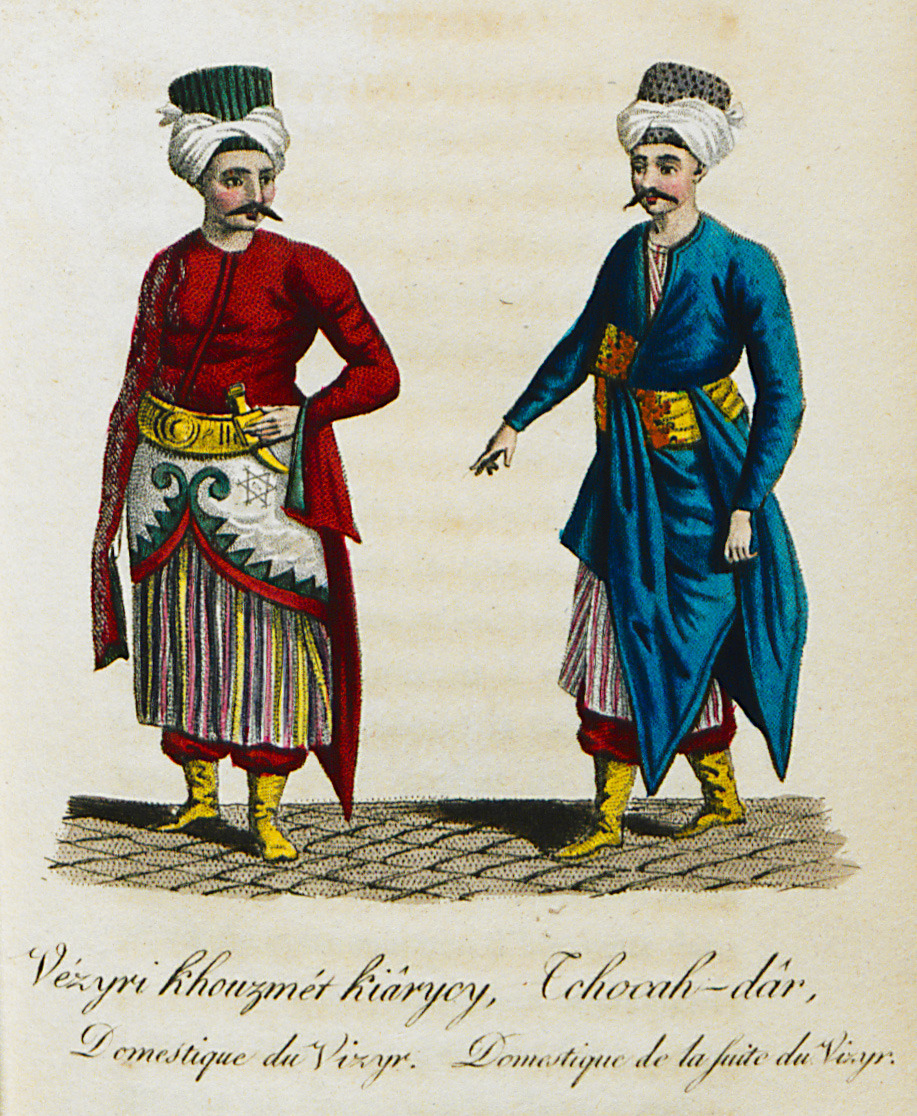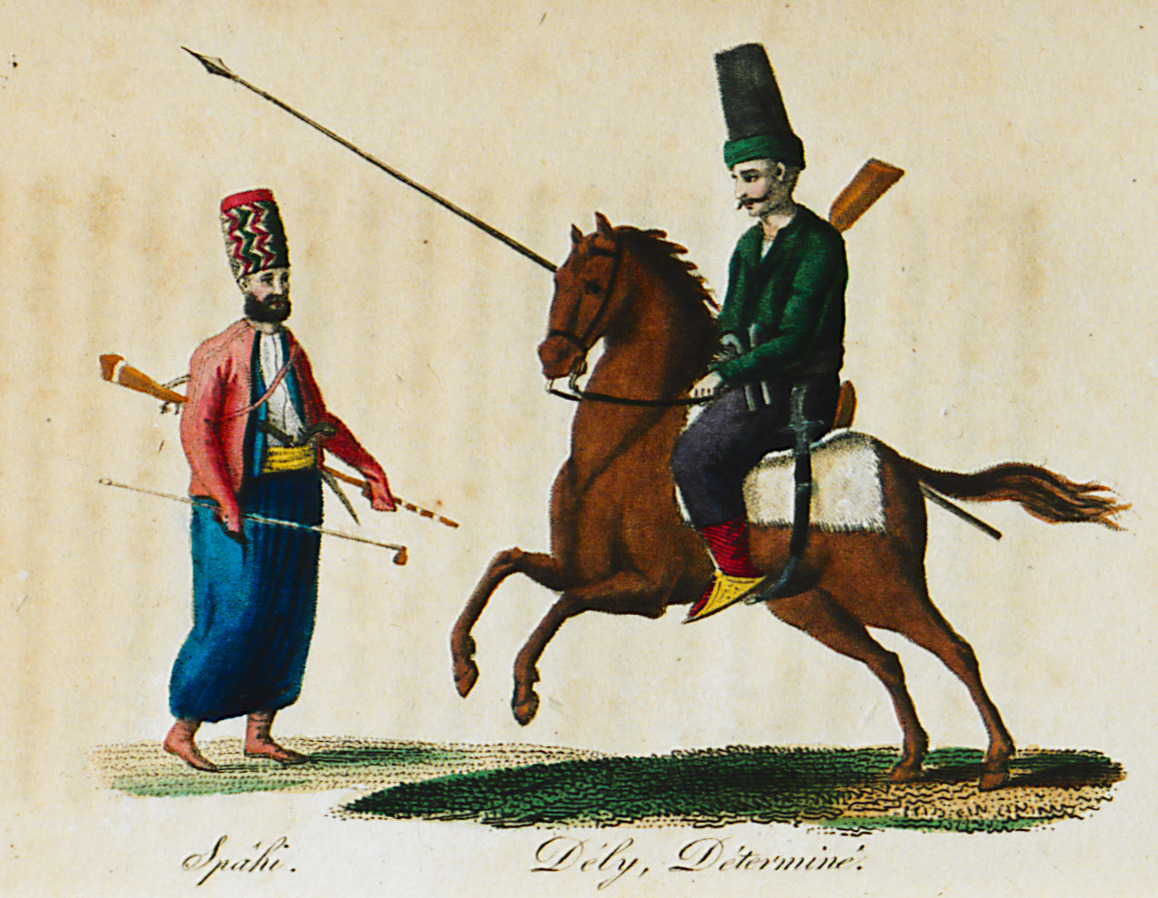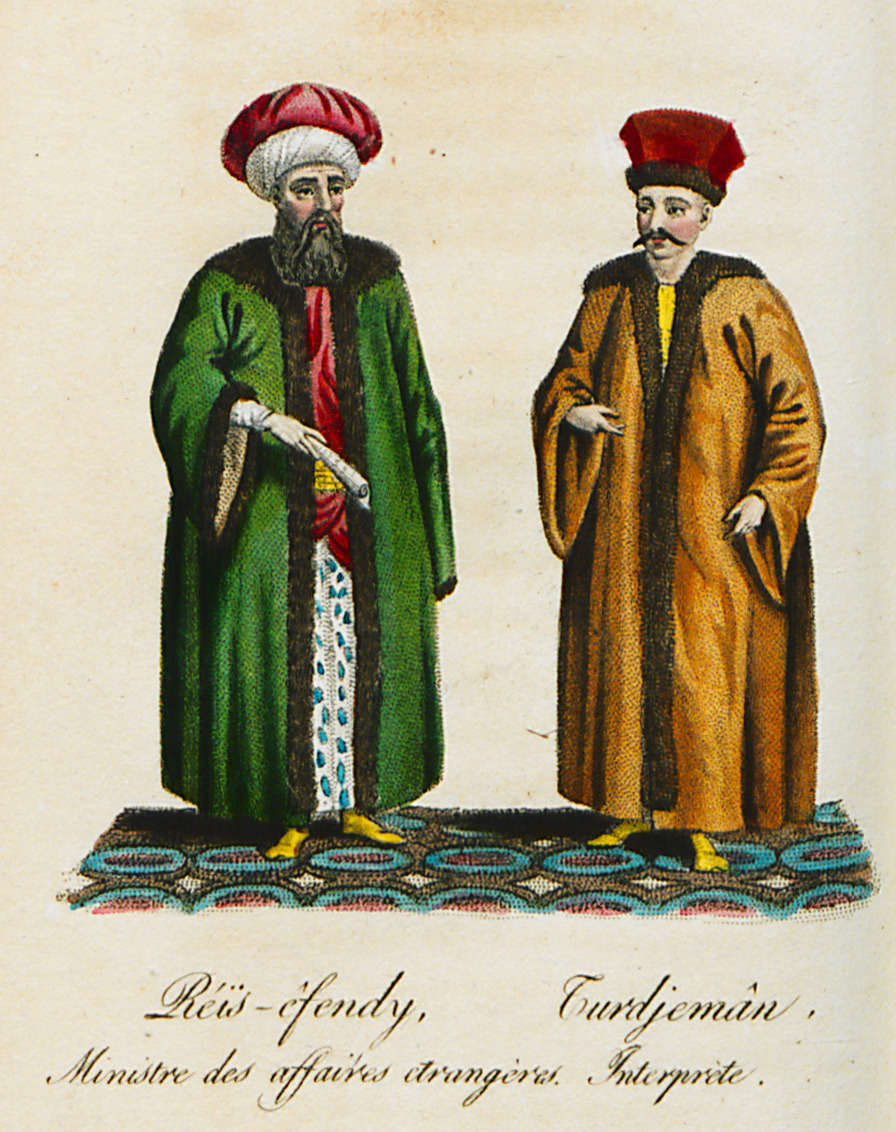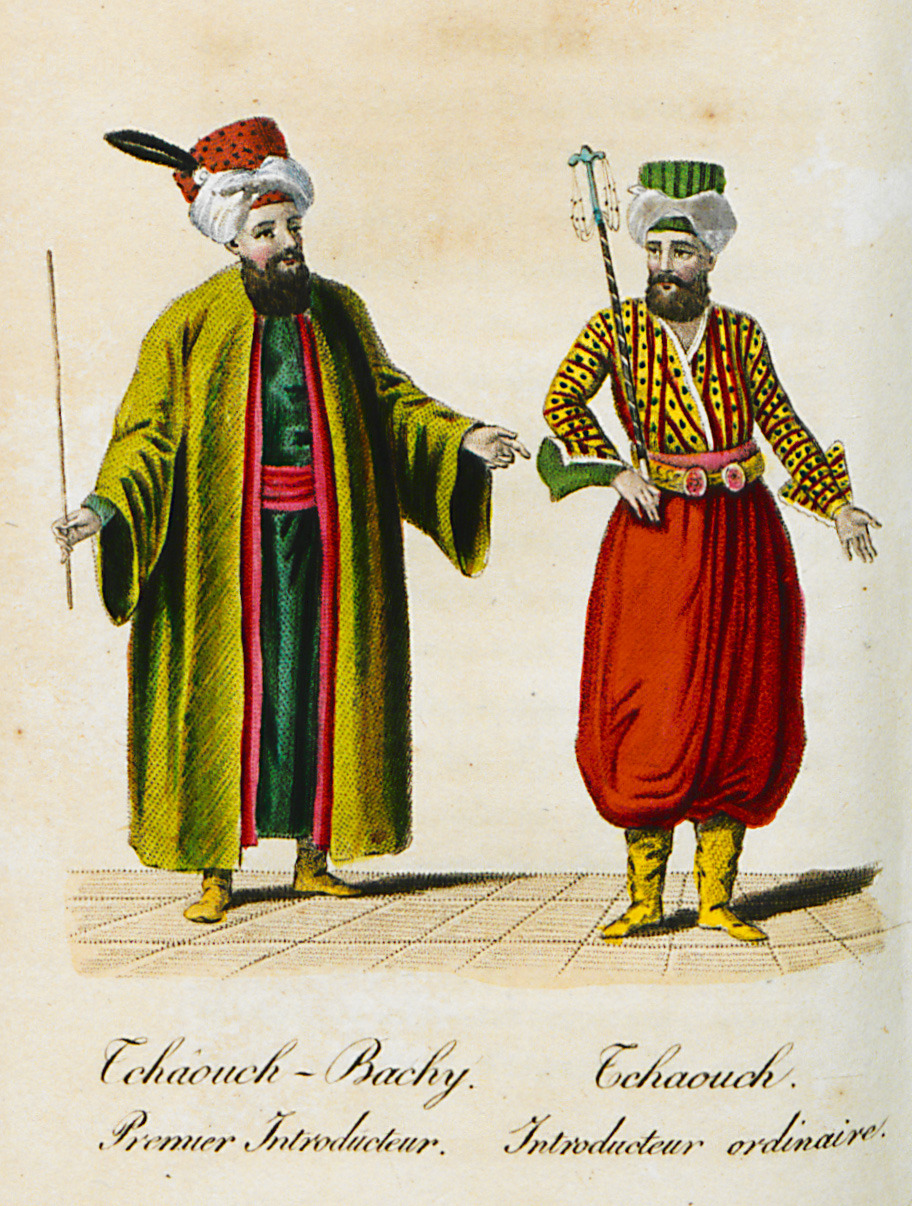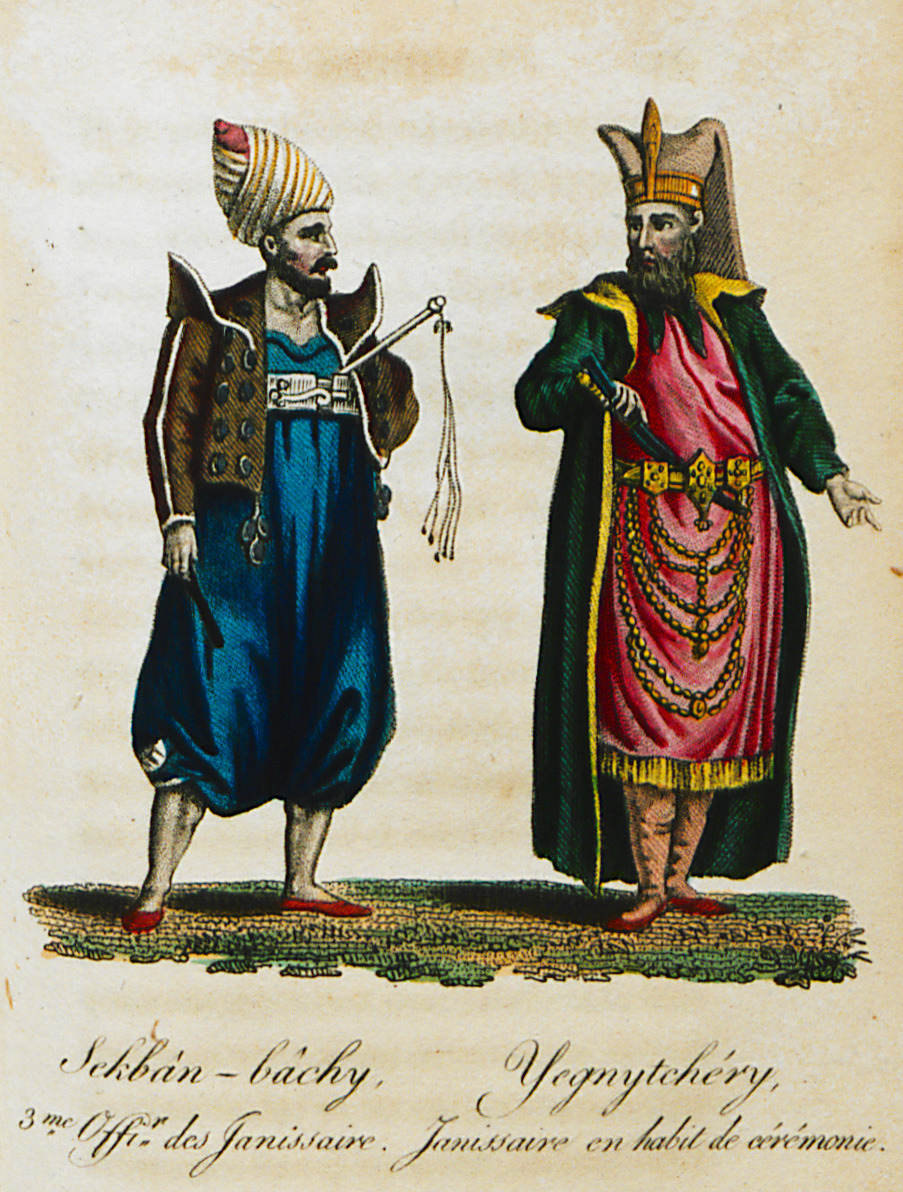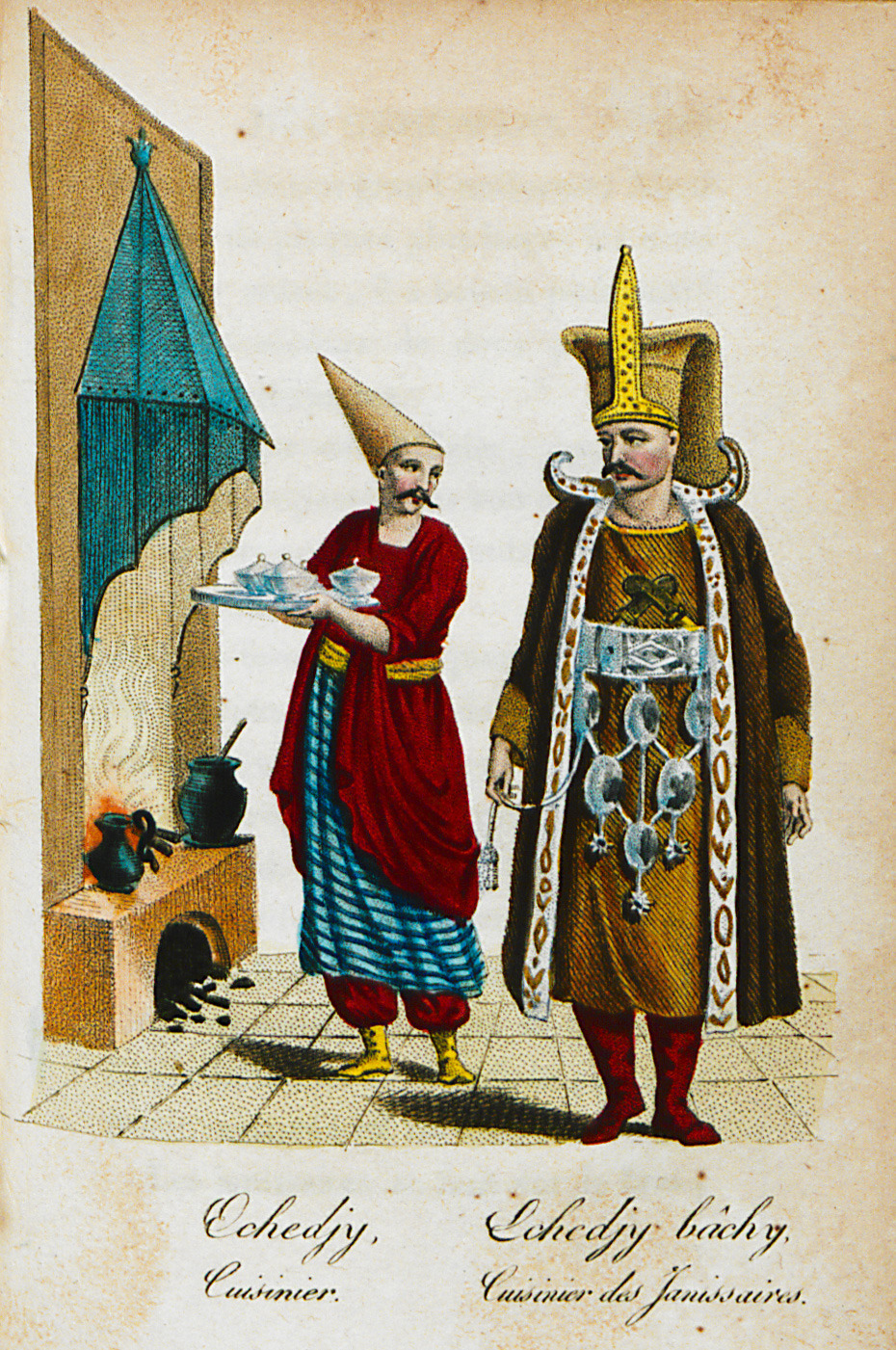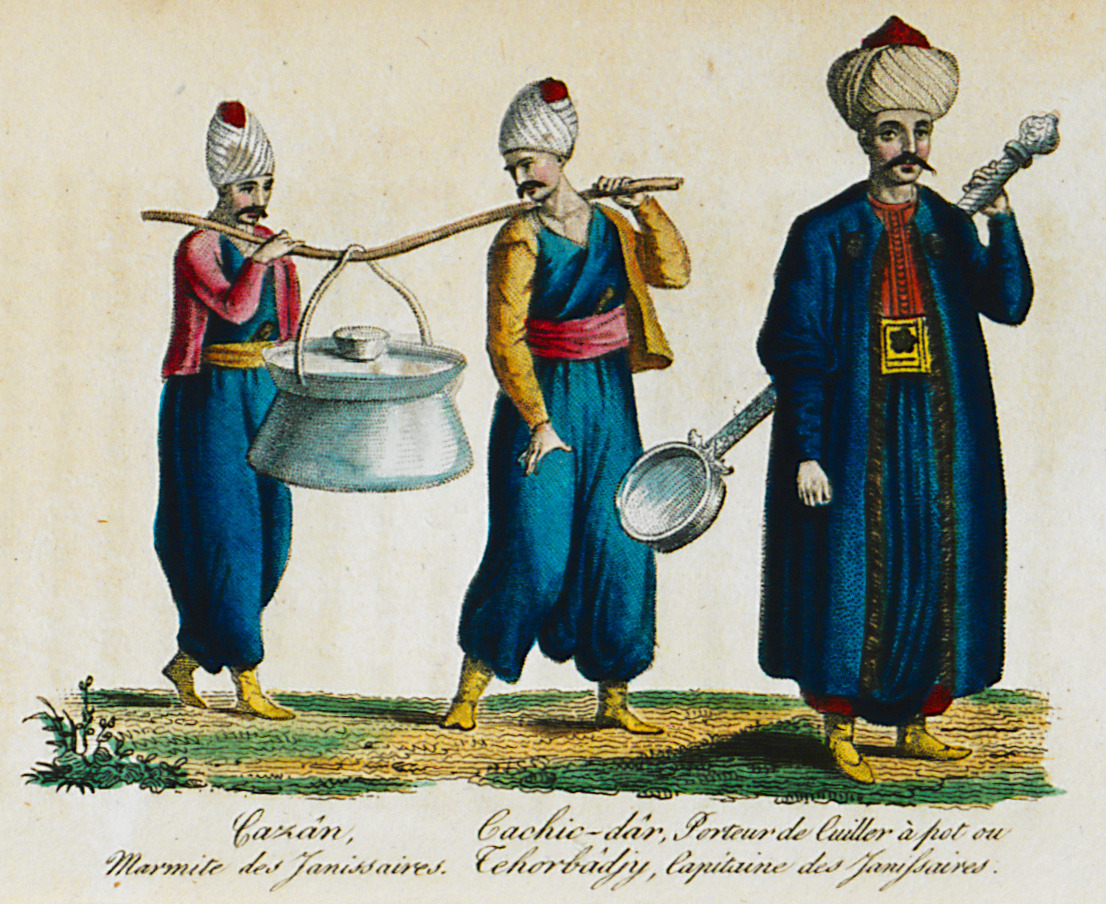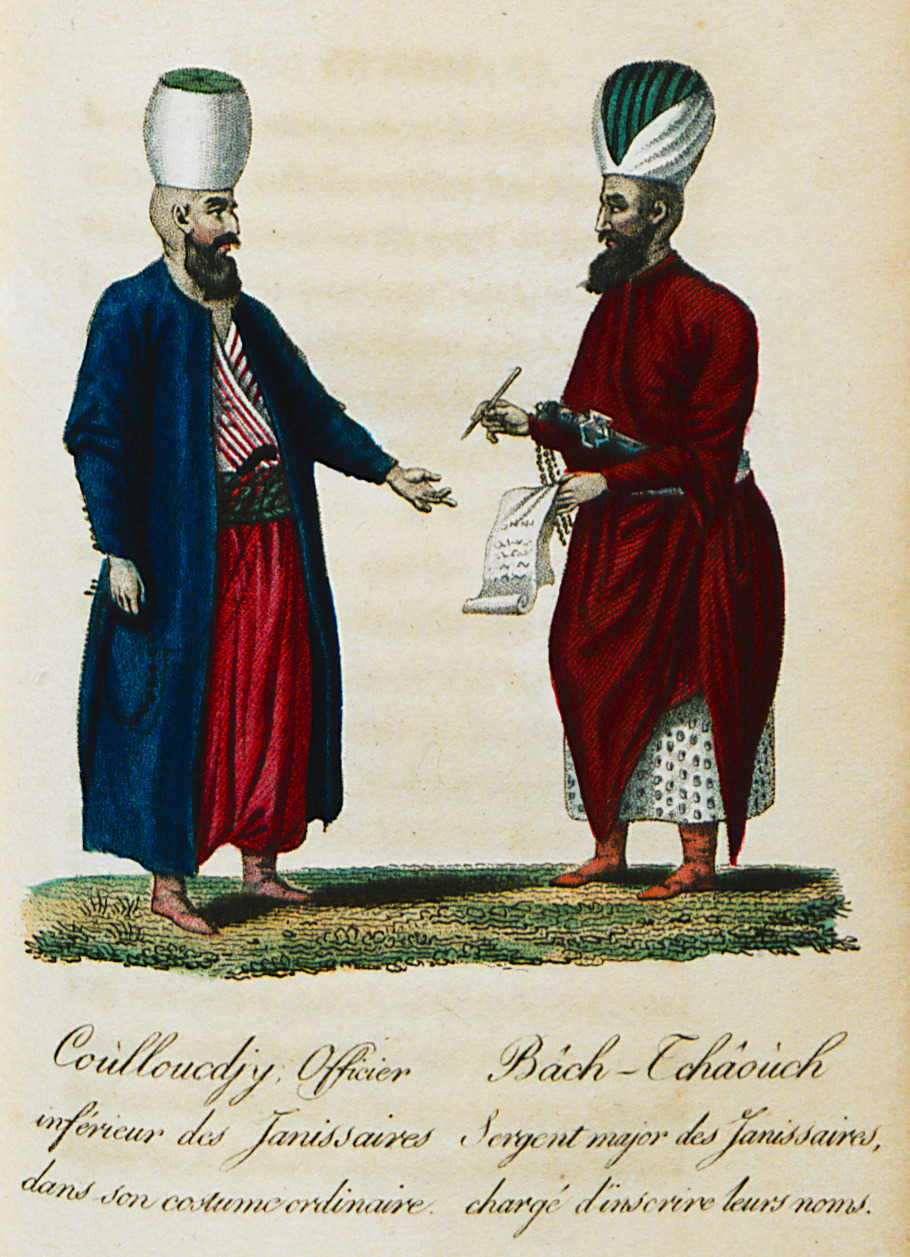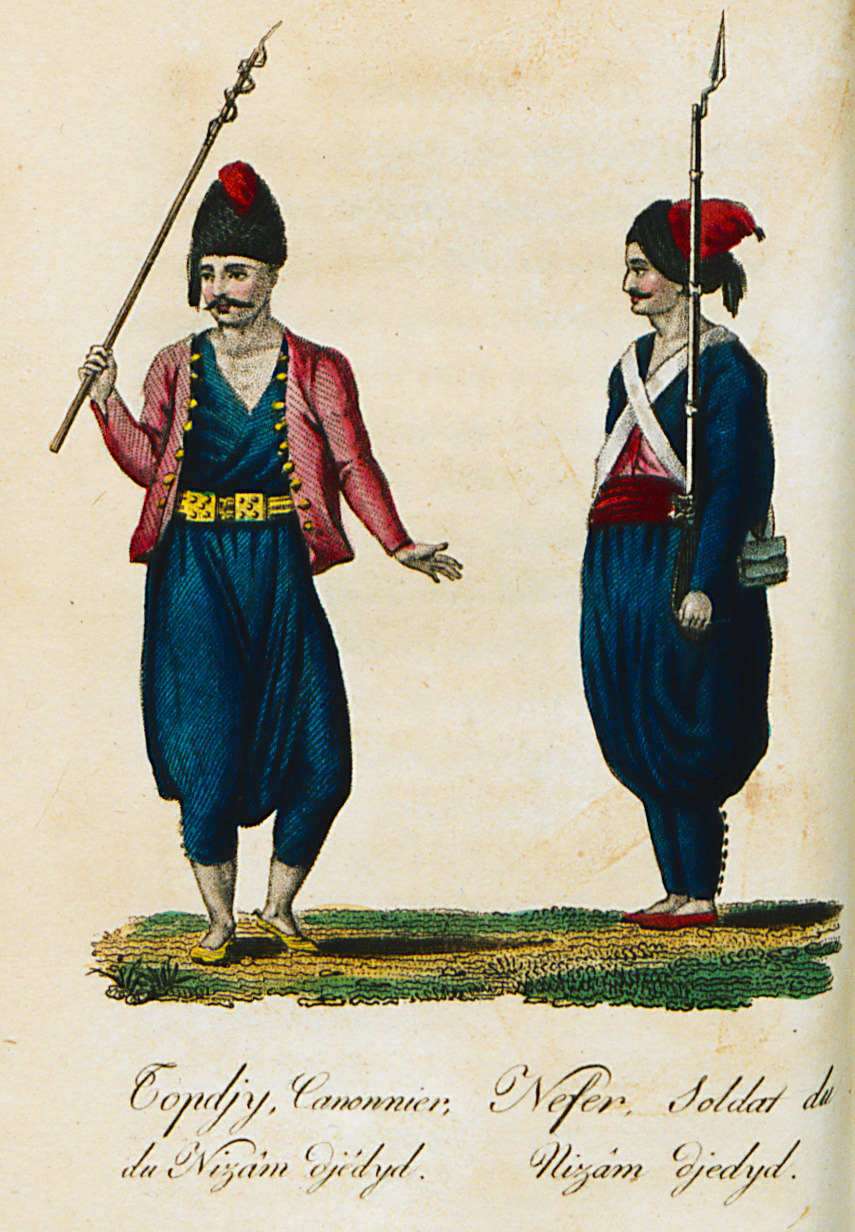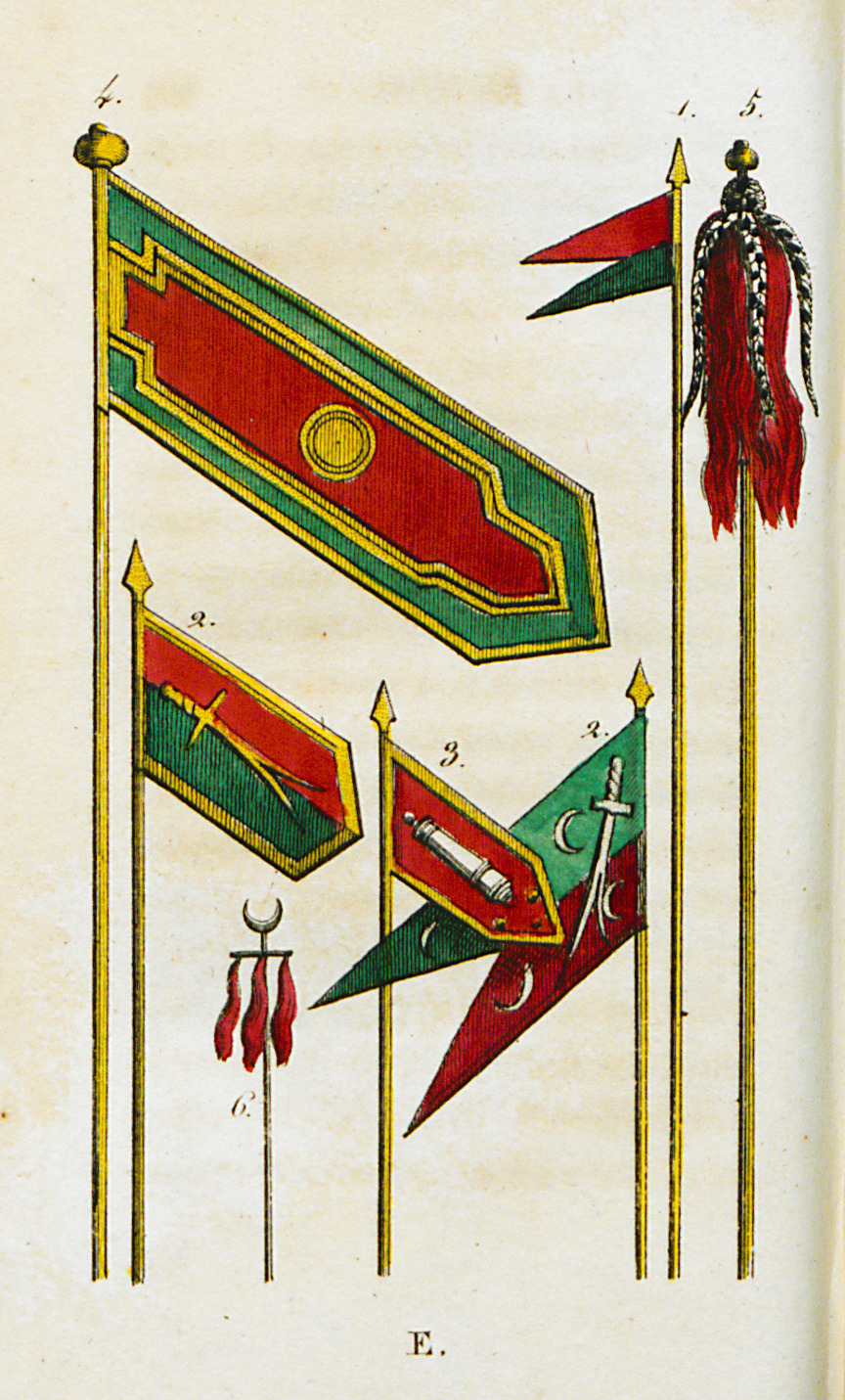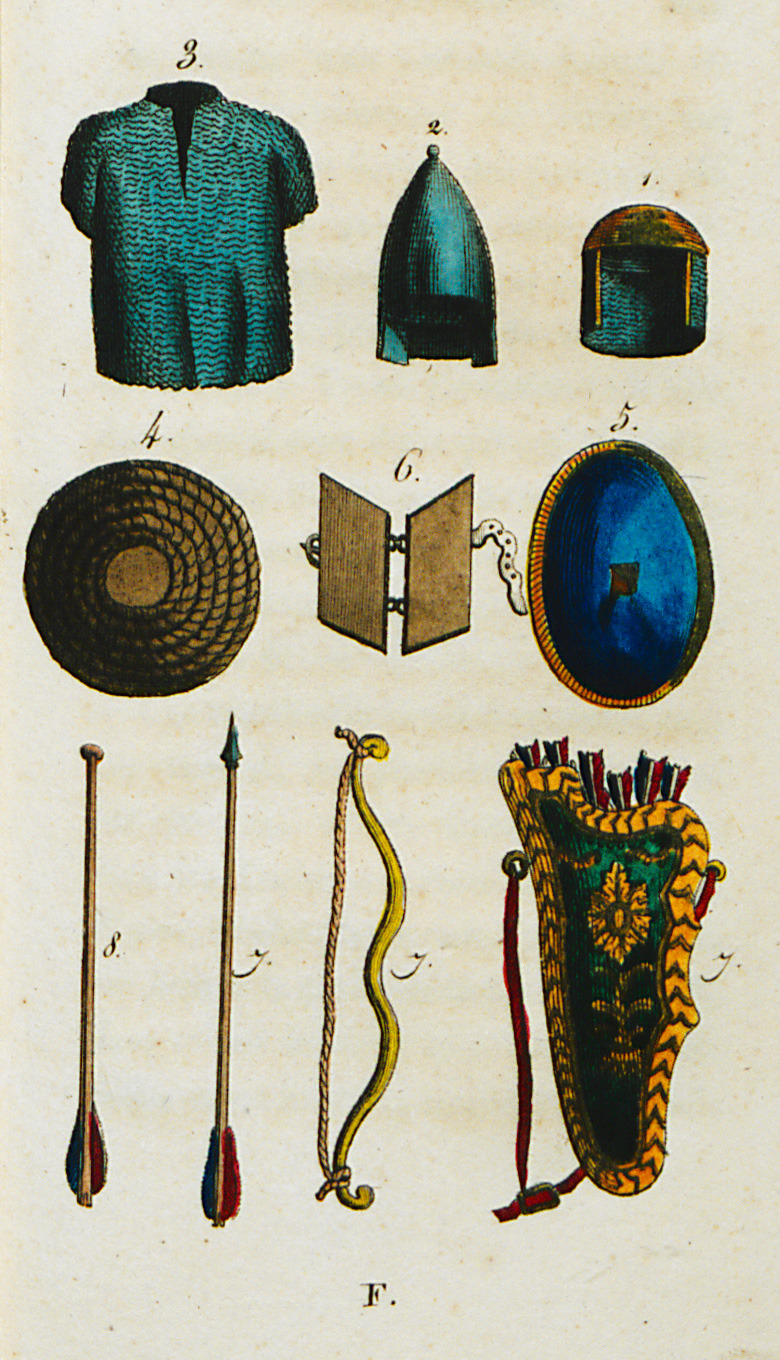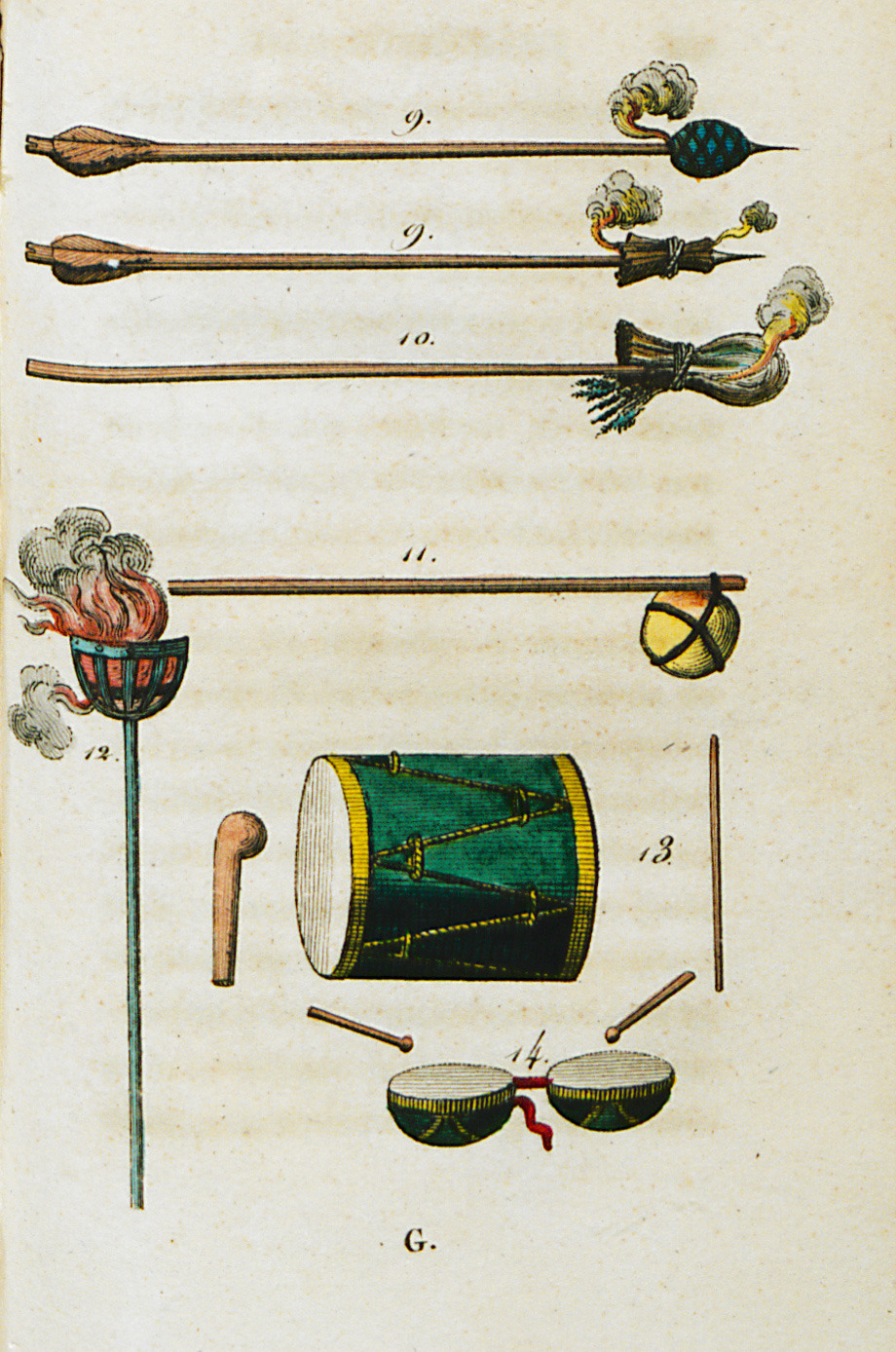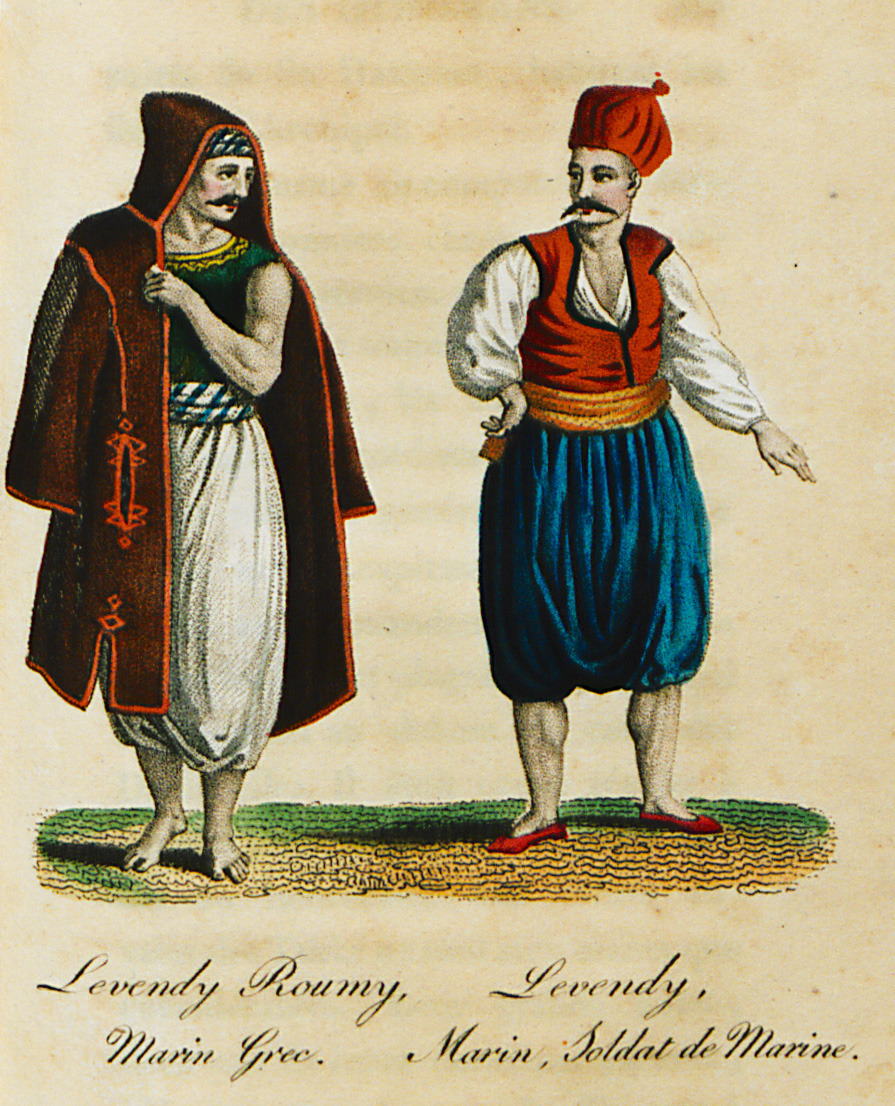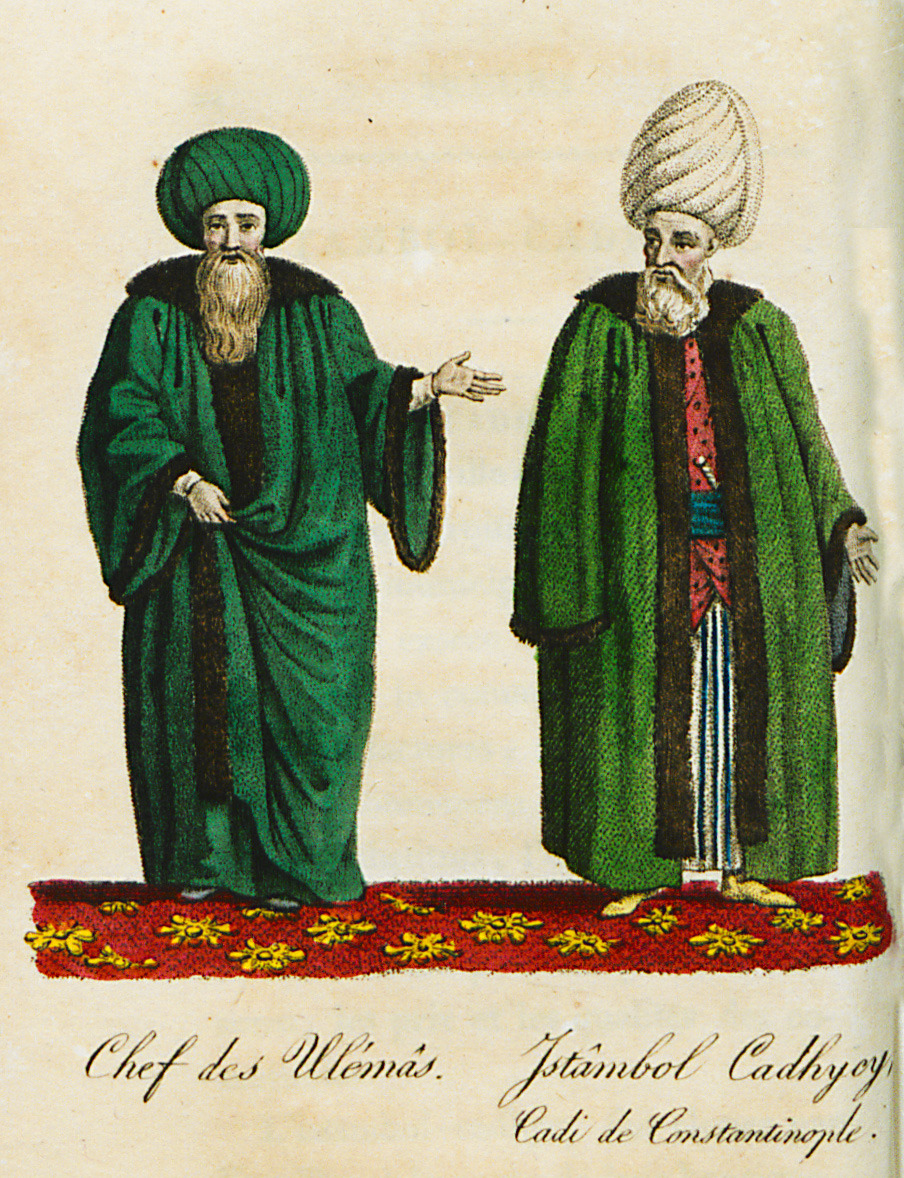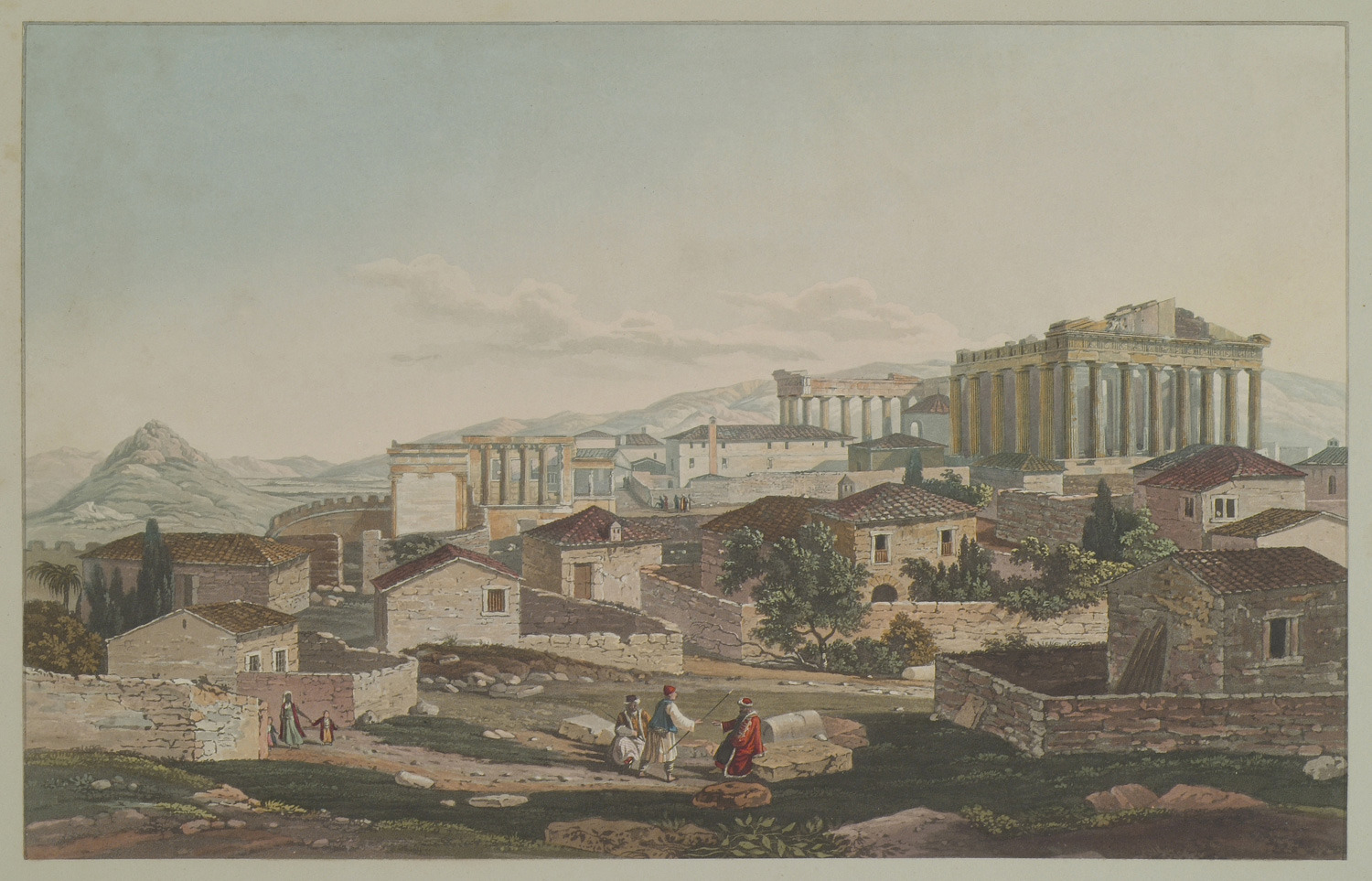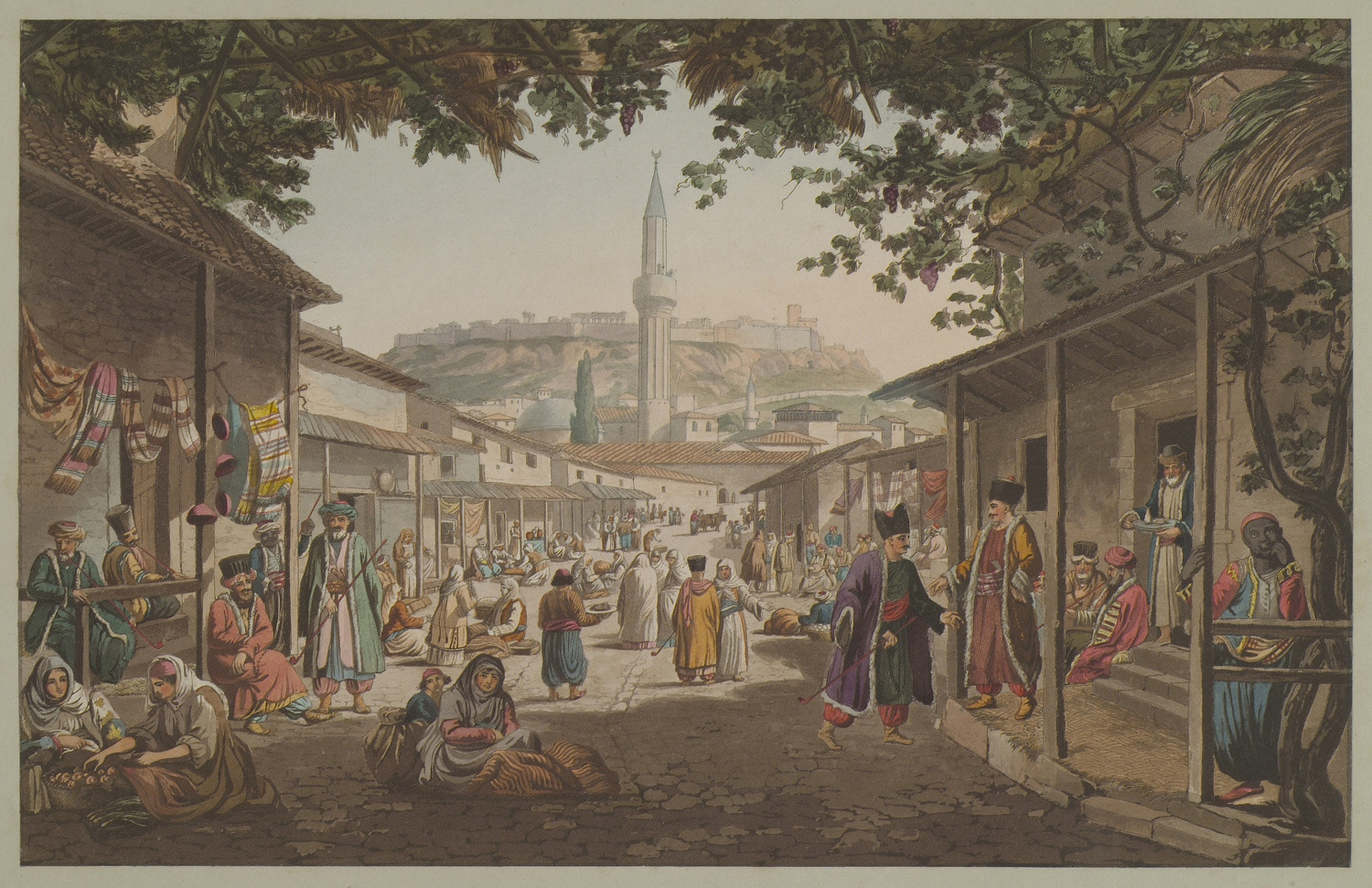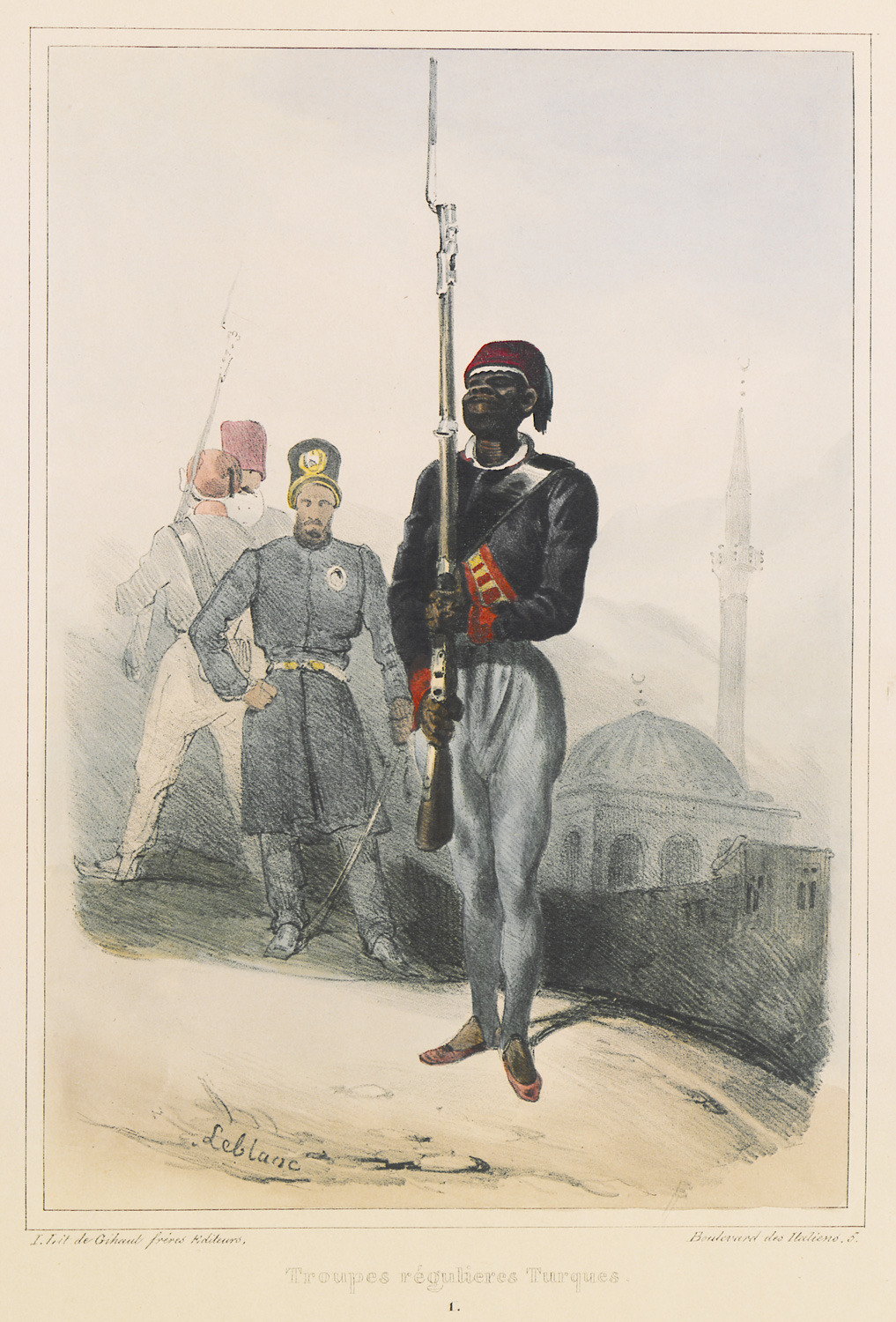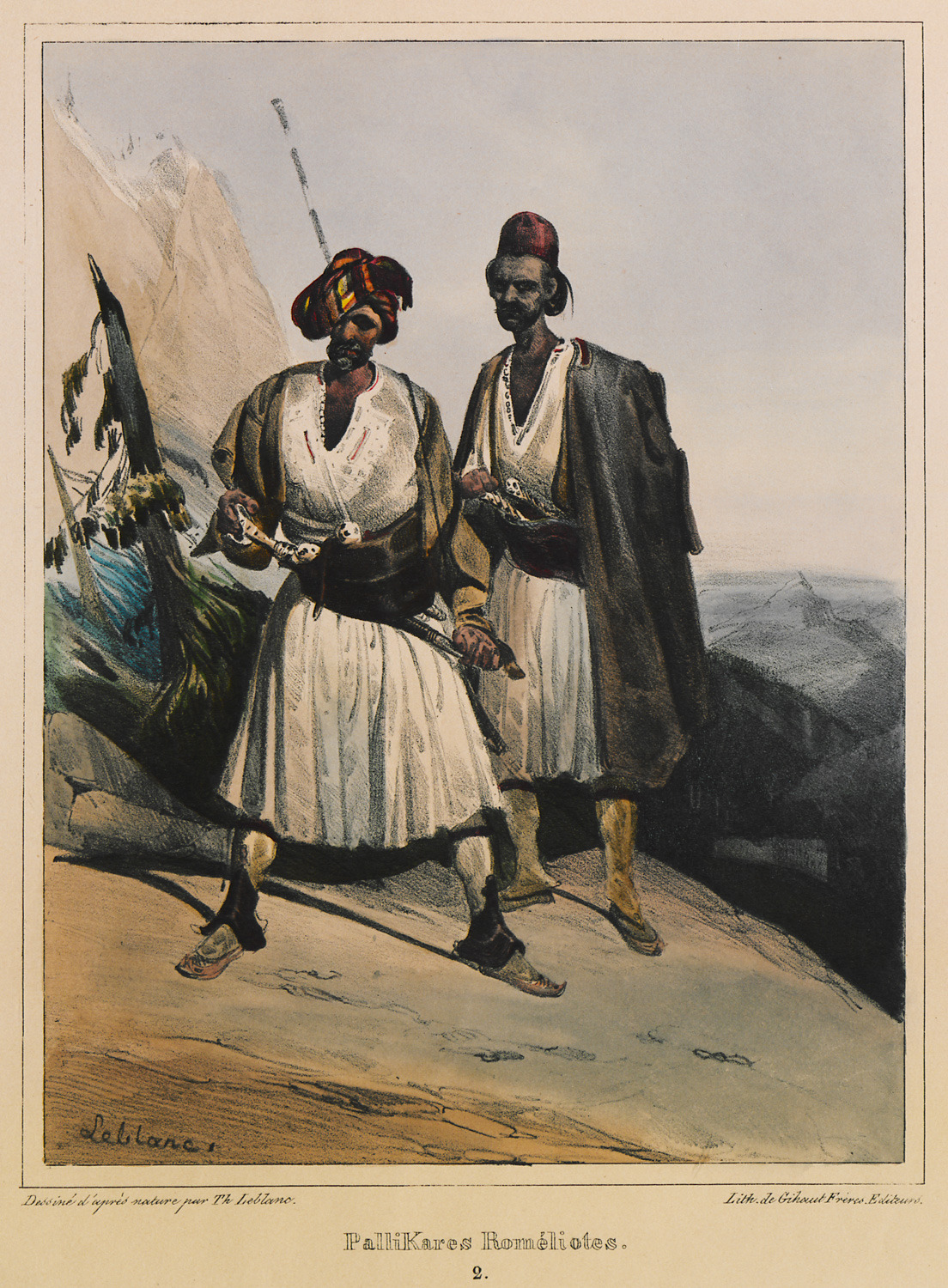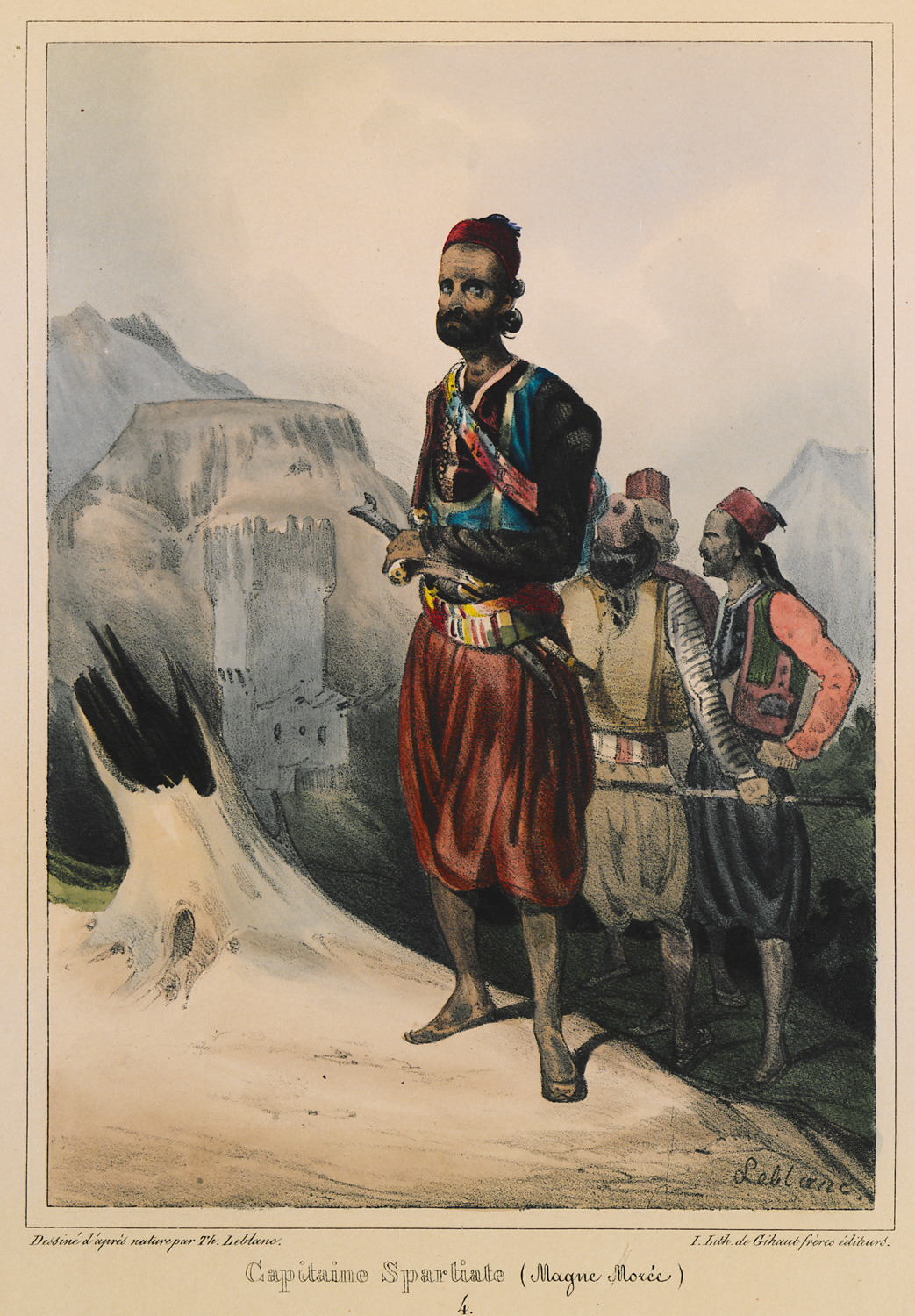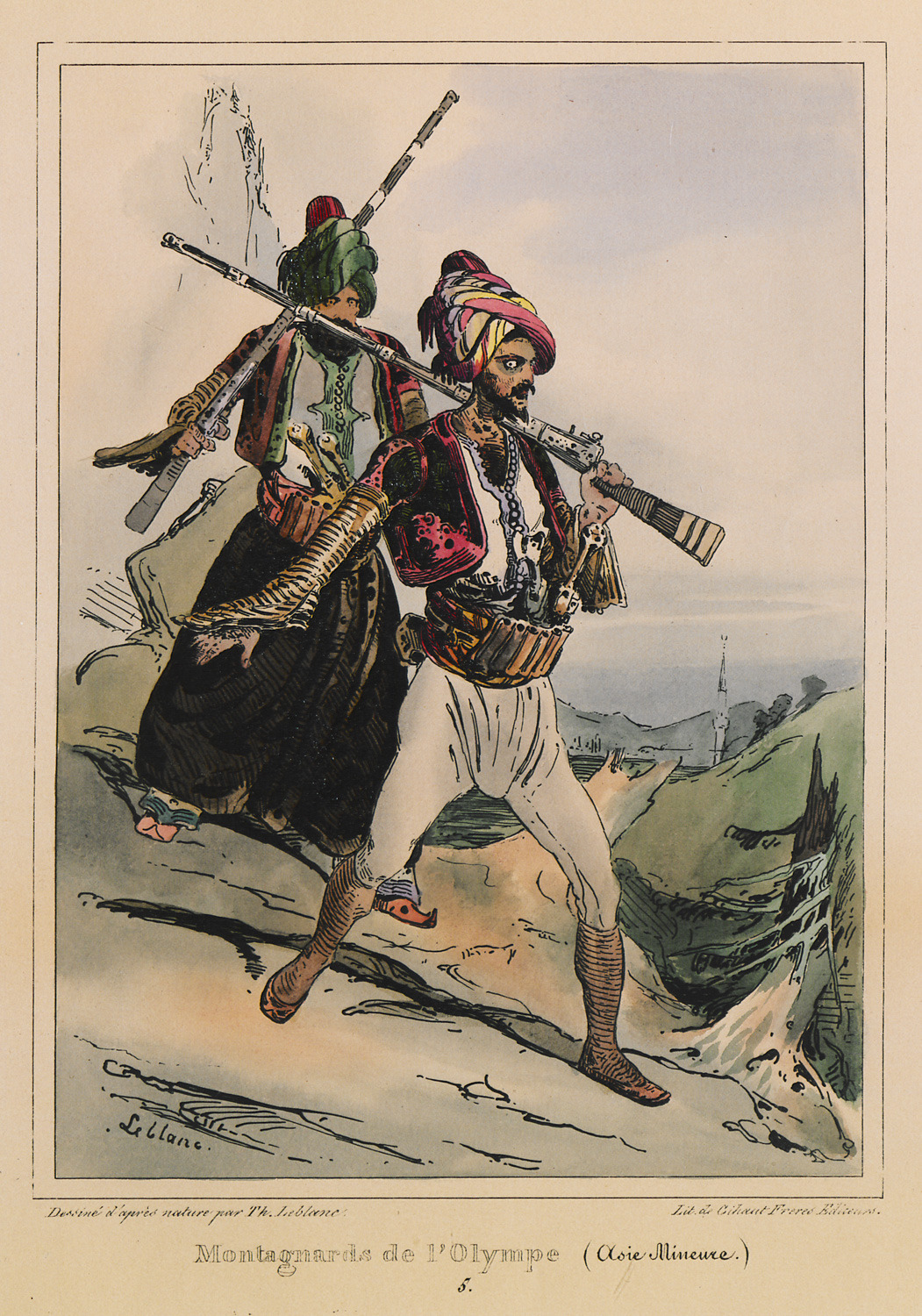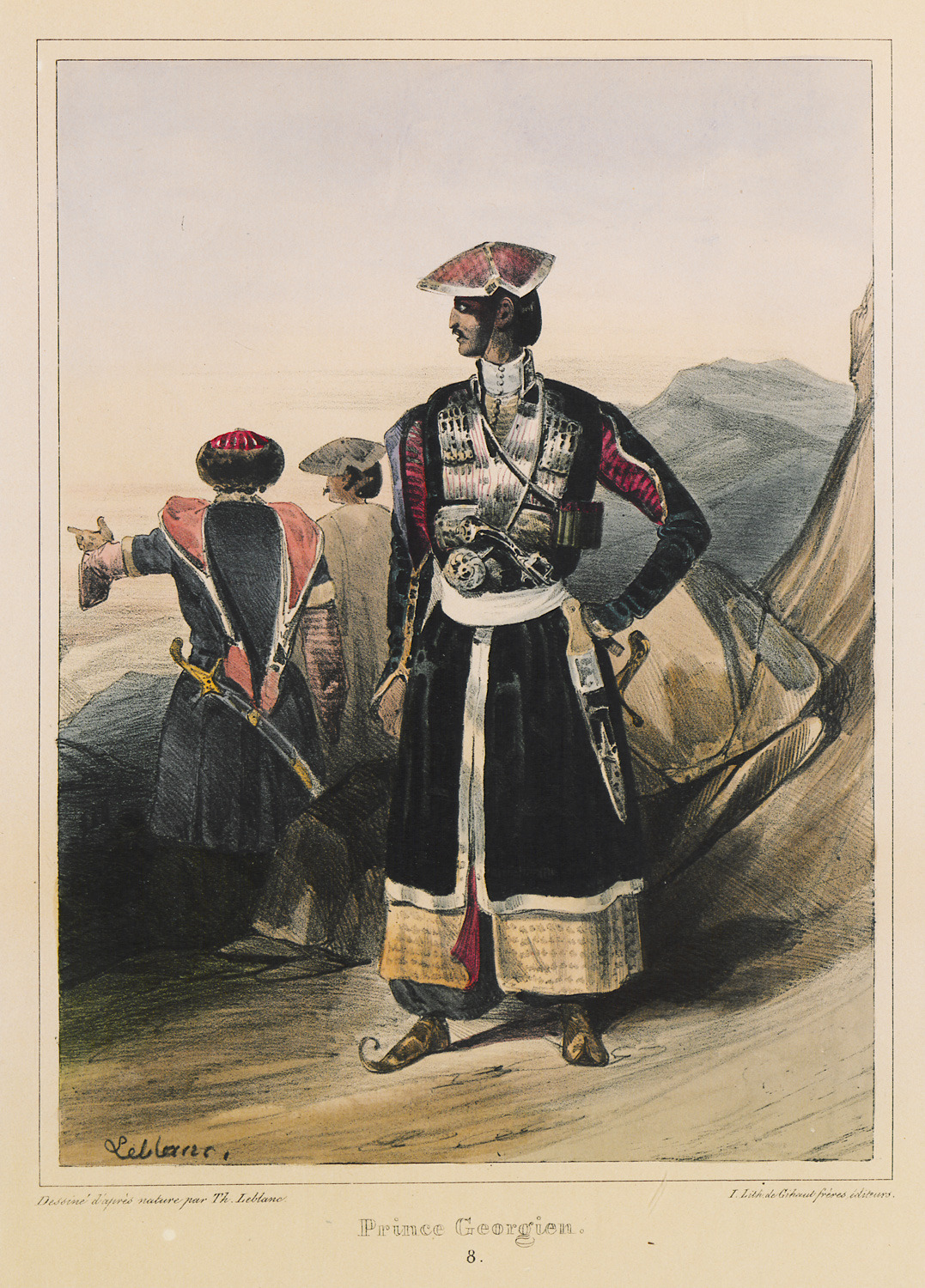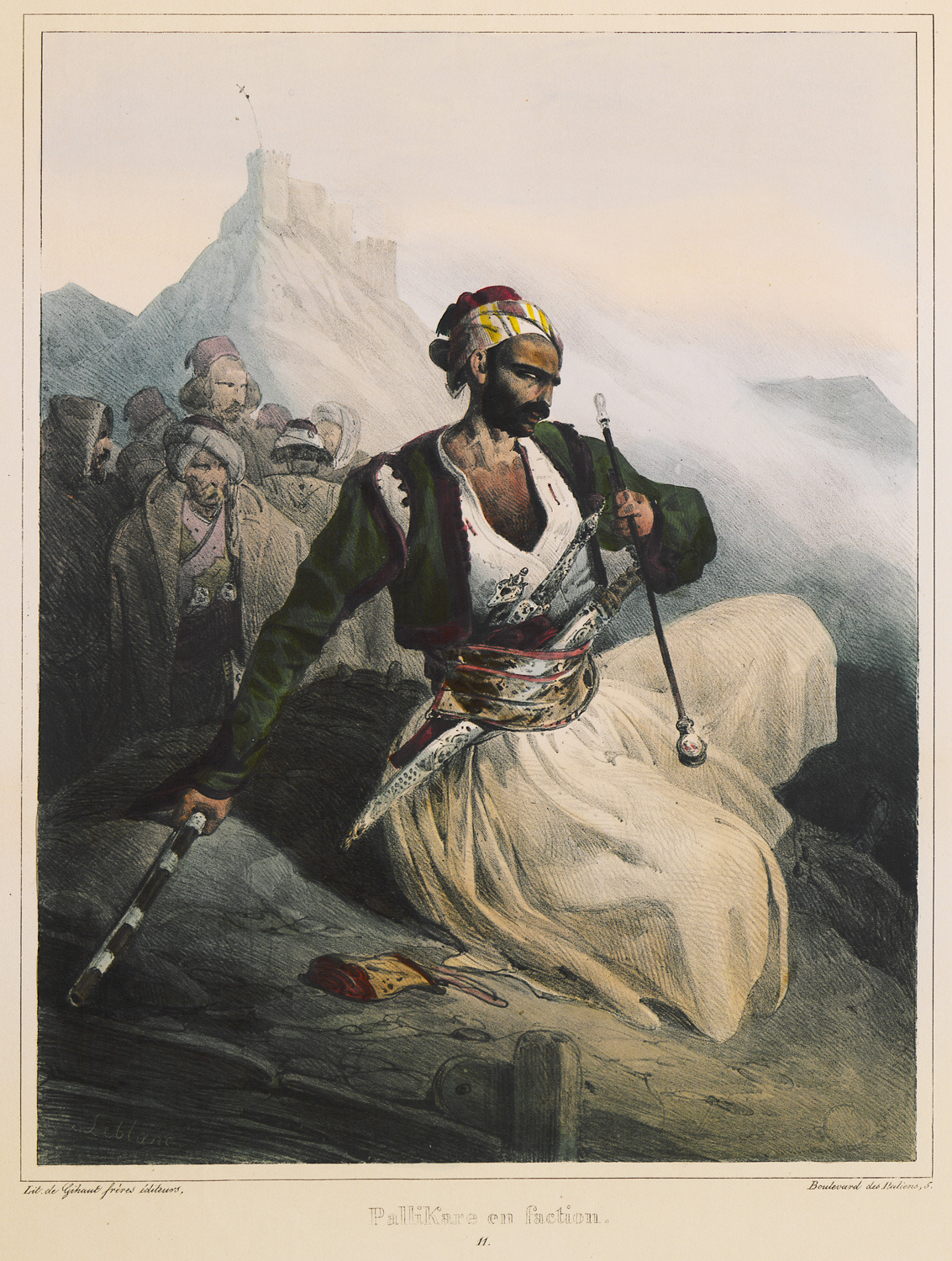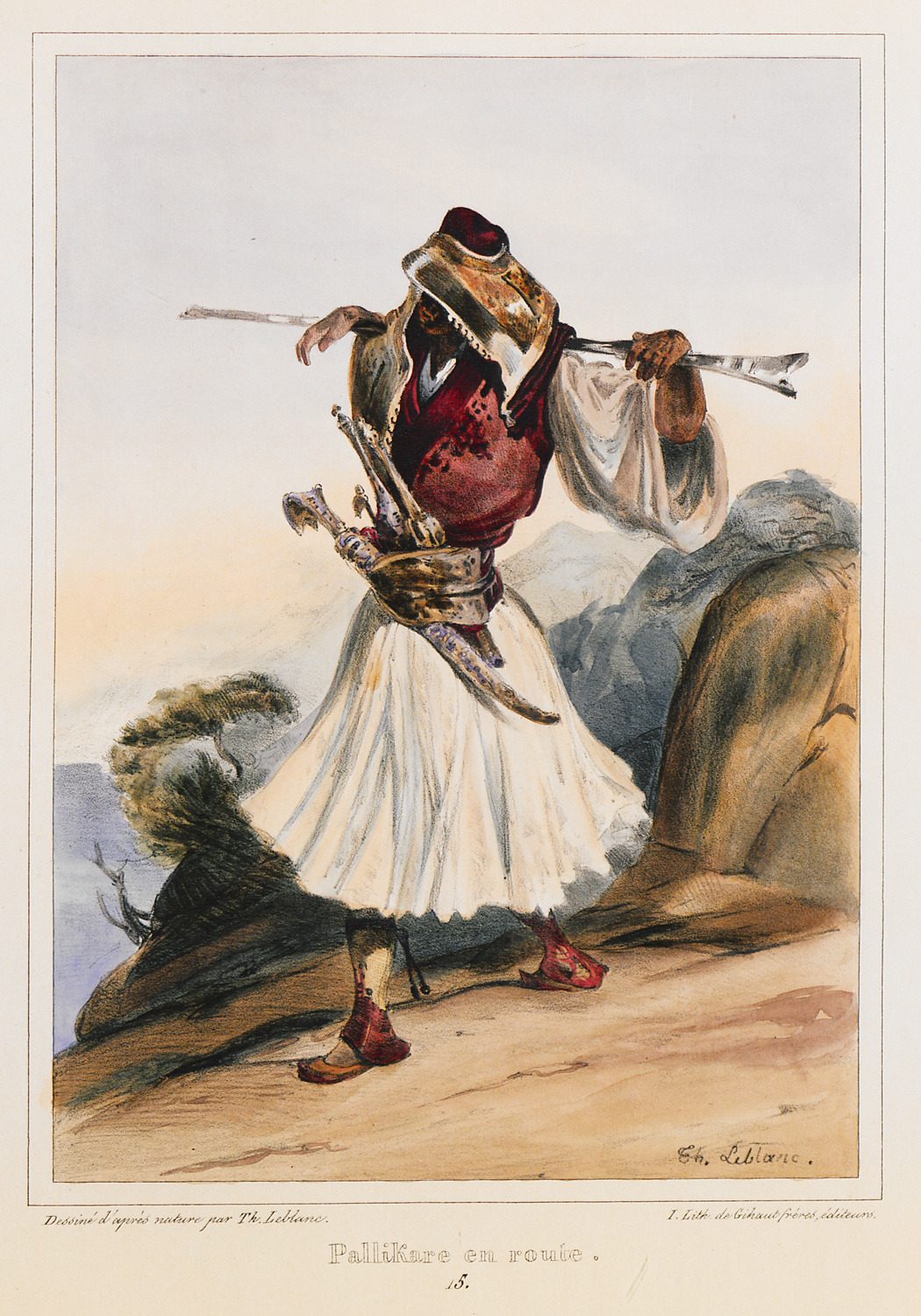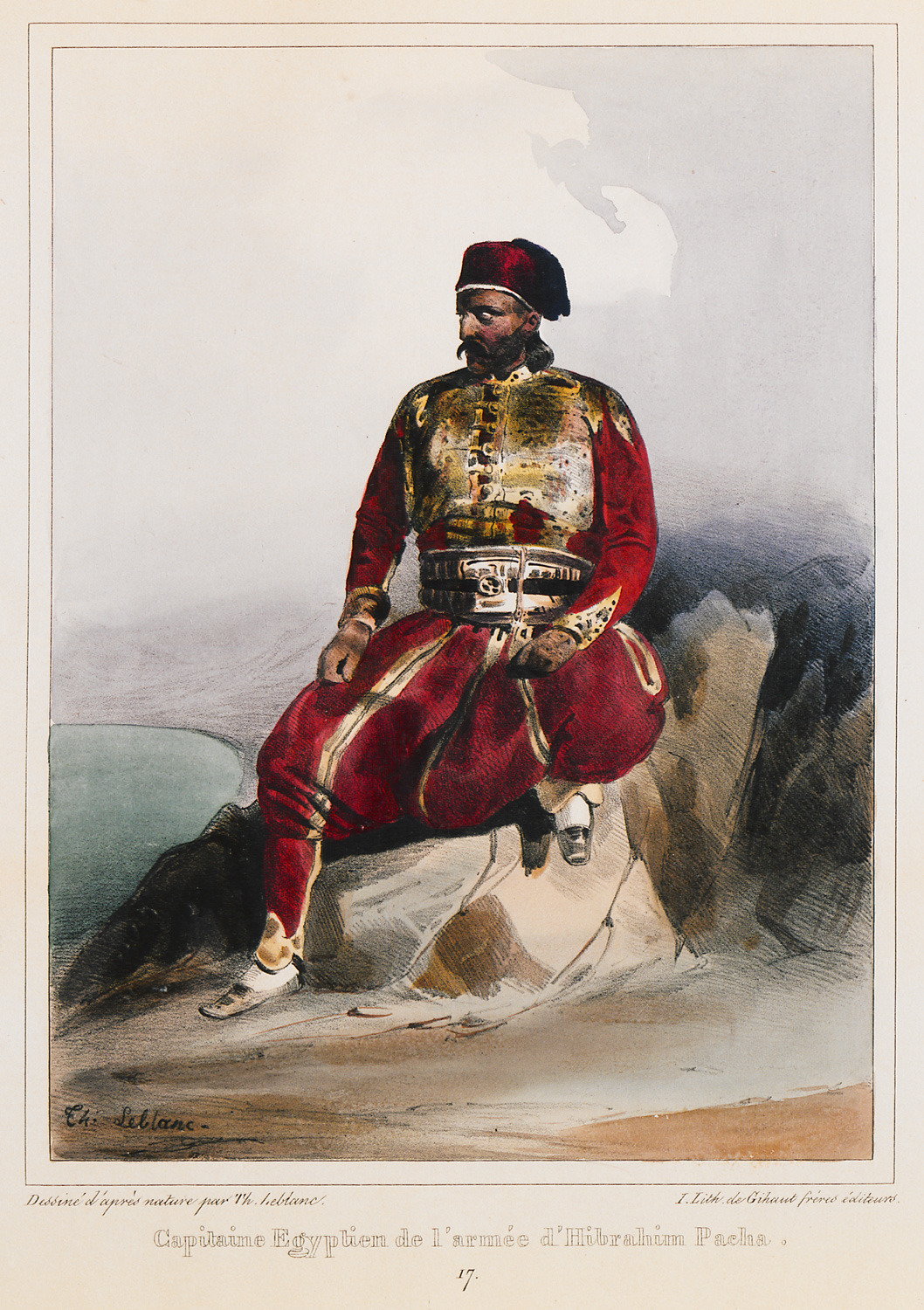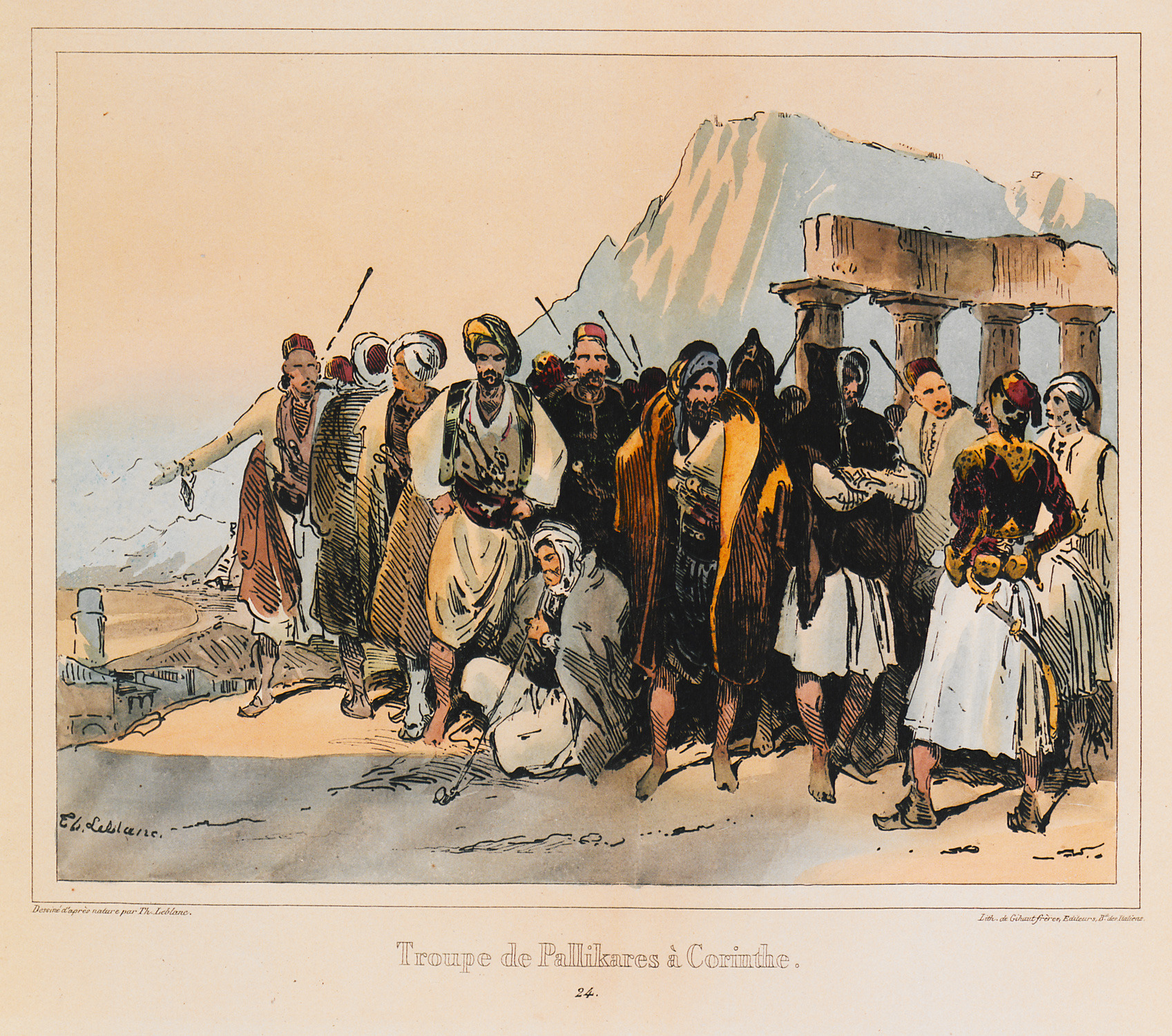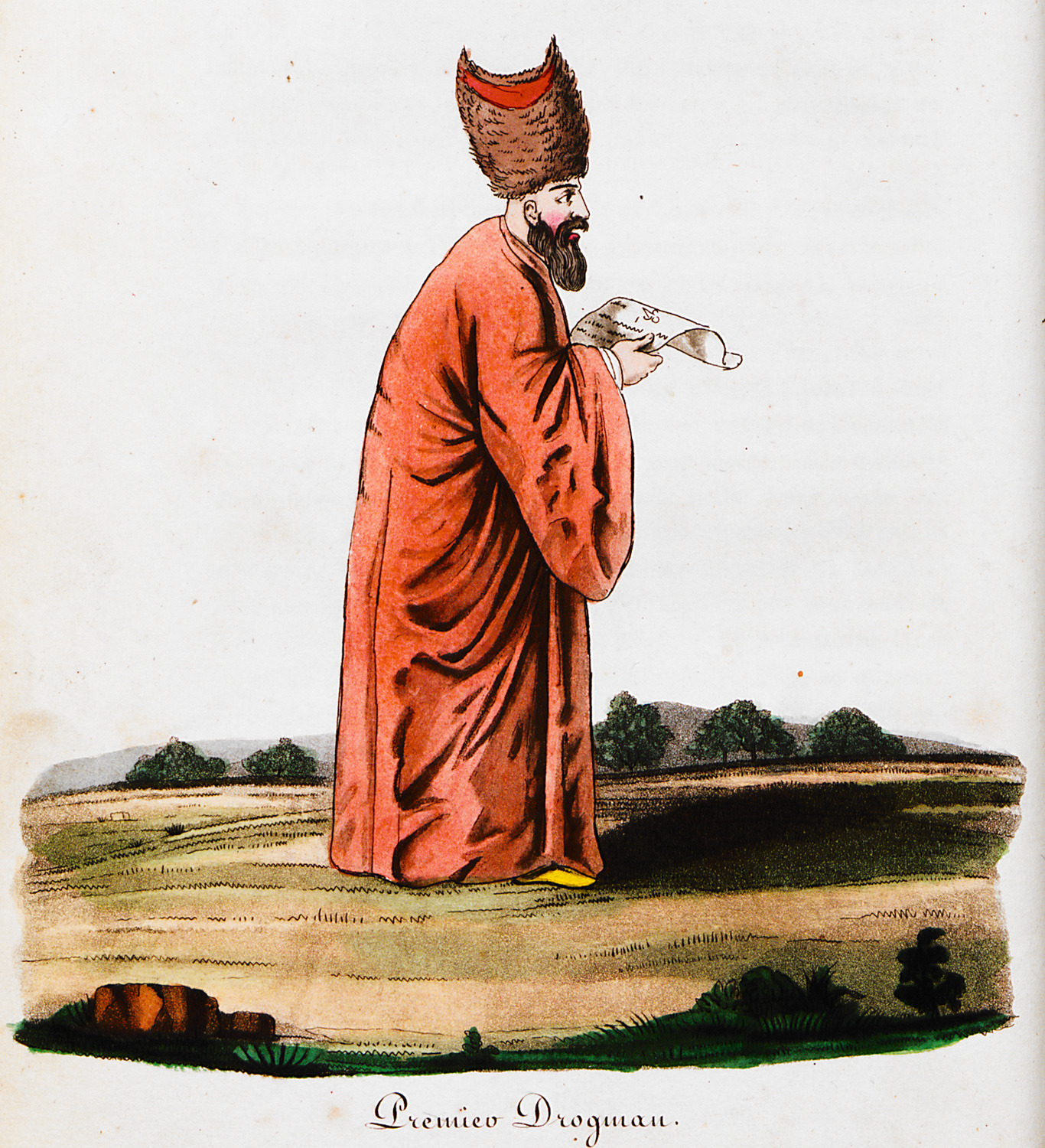State and military institutions – Diplomatic relations (763 Subjects)
Frontispiece to the third volume of the edition. The Prince heir to the Ottoman throne. Haseki Sultan, mother of the Prince heir and first sultana in the imperial harem's hierarchy.
The Ottoman Sultan and the Great Vizier.
Frontispiece to the fourth volume of the edition. Mamluk rider.
The Grand Vizier riding a horse.
A servant and an escort to the Grand Vizier.
A Spahi, member of the Ottoman cavalry corps. A Deli, member of the light cavalry.
The Minister of the Exterior (Reis Efendi). A Dragoman of the imperial palace.
The Chavush Bashi, head of the ushers of the Imperial palace. An usher of the Imperial palace.
A lower-ranking officer of the Janissary corps. A Janissary in ceremonial dress.
Ast-chi, a cook. Ast-chi bashi, head cook of the Janissary corps.
Lower-ranking officers carry the pot containing the Janissaries' meal. A Kasik-dar or Çorpaci, Captain of the Janissaries.
An officer of the Janissaries. The head of the lower-ranking officers (Bas- Chavus).
A Topchi, soldier of the artillery corps, dressed in the costume established in the late 18th century, after the Nizam-ı Cedid reform. A soldier of the Ottoman army, in similar dress.
Ottoman emblems and military flags.
Garments and weapons of the members of the Ottoman artillery.
Weapons of the Ottoman artillery, drums and other military musical instruments.
A Greek and a Turkish sailor.
The head of the Ulemas, scholars of Islamic Law and other disciplines. The Kadi, head of the judges of Istanbul (Istanbul Kadişi).
The west front of the Parthenon and the Erechtheion, from the Propylaea.
The bazaar of Athens. On the forefront, on the right, an emancipated African slave. On the doorway, the owner of the coffeehouse who is brigning a tray with coffee to the Ottoman governor Disdar Aga. Disdar Aga is sitting on the stairs, dressed in red, and next to him sits another Turkish aga. Standing at the entrance of the coffeehouse, the Greek voivode (governor) of Salamis island, who is conversing a Greek Baratario (protegé of a foreign power). At the centre of the picture, three Turkish women covered with long white veils. According to Edward Dodwell's description, the rest of the women depicted are Arvanite. Standing, on the right, a devout Muslim in green costume, an indication that he has made the pigrimage to Mecca.
Ottoman soldier wearing the uniform established after the reforms of the early 19th century.
“Palikaria”, members of irregular troops of Roumeli, Greece.
A kapetanios from Sparta, Peloponnese.
“Vounisioi” (mountaineers), members of irregular troops of Mount Uludag (Olympus of Mysia), Bithynia.
Prince from Georgia.
“Palikari”, member of irregular troops of the Peloponnese, with his clan.
“Palikari”, member of irregular troops.
A captain (general) of the army of Ibrahim Pasha of Egypt, during the Cretan campaign.
“Palikaria” and heads of irregular troops at the temple of Apollo in Ancient Corinth.
Interpreter of the Sultan's palace.


